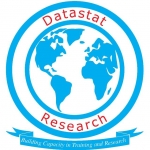|
|
Agricultural Value Chain Finance
USD 1,000 |
Venue: Nairobi and Mombasa, Kenya
Other Dates
| Venue | Date | Fee | |
|---|---|---|---|
| Nairobi and Mombasa, Kenya, Kenya | 02 - 13 Sep, 2024 | USD1000 | |
| Nairobi and Mombasa, Kenya, Kenya | 07 - 18 Oct, 2024 | USD1000 |
Agricultural Value Chain Finance Nairobi, Mombasa; Kenya
This course on AgVCF provides an understanding of the gaps and challenges of agriculture finance. It defines AgVCF, different business models, and the available instruments for accessing financial services. Furthermore, it examines the risk mitigation tools with innovative methodologies and systems that have worked in services development. The provision of credit and general financial services to all the actors in the AgVC in developing countries, although high in demand, has not been widespread due to lack of extension of knowledge and appropriate financial instruments. In this course, the participants will learn to analyse the products and their delivery mechanisms with the risk mitigation tools to serve the actors of the entire AgVC.
The course takes a case study approach to analyse what works and what does not in the context of AgVCF. Facilitators will provide an overview of each topic and highlight the issues through an examination of case studies. Participants will be encouraged to share their own experiences and facilitate the discussions throughout the course.
Duration
10 days
Objectives
To sharpen the awareness of the fundamental issues of financing agriculture and agribusiness using an AgVCF approach and to build the skill set required in designing the instruments and delivering innovative services for all actors in the AgVC.
Prerequisites
The participants should have a basic understanding of financial services, such as agriculture finance, rural finance, microfinance, development finance, banking and/or rural economic development. Some knowledge of agricultural market development services and agribusiness would be helpful.
Who should attend?
The intended course participants for the training include: agricultural finance officers from different banks and financial institutions, government and non-government development agencies, micro-finance institutions (MFIs), donors who advise in and work with agriculture finance, and faculty staff and students of universities specializing in agriculture/rural finance.
Course contents
Module 01: The key issues (5)
Module 02: Actors and approaches (4)
Module 03: Loan planning and analysis (5)
Module 04: Loan risk analysis (5)
Module 05: RF service delivery (5)
Module 06: Loan management (5)
Module 07: Agricultural products and services (5)
Module 08: Portfolio risk management (5)This course on AgVCF provides an understanding of the gaps and challenges of agriculture finance. It defines AgVCF, different business models, and the available instruments for accessing financial services. Furthermore, it examines the risk mitigation tools with innovative methodologies and systems that have worked in services development. The provision of credit and general financial services to all the actors in the AgVC in developing countries, although high in demand, has not been widespread due to lack of extension of knowledge and appropriate financial instruments. In this course, the participants will learn to analyses the products and their delivery mechanisms with the risk mitigation tools to serve the actors of the entire AgVC.
The course takes a case study approach to analyses what works and what does not in the context of AgVCF. Facilitators will provide an overview of each topic and highlight the issues through an examination of case studies. Participants will be encouraged to share their own experiences and facilitate the discussions throughout the course.
Duration 10 days
Objectives
To sharpen the awareness of the fundamental issues of financing agriculture and agribusiness using an AgVCF approach and to build the skill set required in designing the instruments and delivering innovative services for all actors in the AgVC.
Prerequisites
The participants should have a basic understanding of financial services, such as agriculture finance, rural finance, microfinance, development finance, banking and/or rural economic development. Some knowledge of agricultural market development services and agribusiness would be helpful.
Who should attend?
The intended course participants for the training include agricultural finance officers from different banks and financial institutions, government and non-government development agencies, micro-finance institutions (MFIs), donors who advise in and work with agriculture finance, and faculty staff and students of universities specializing in agriculture/rural finance.
Course contents
Module 01: The key issues
Module 02: Actors and approaches
Module 03: Loan planning and analysis
Module 04: Loan risk analysis
Module 05: RF service delivery
Module 06: Loan management
Module 07: Agricultural products and services
Module 08: Portfolio risk management
Module 09: The role of innovations
Module 10: Savings, funding, product, and program design
Methodology
The instructor led trainings are delivered using a blended learning approach and comprises of presentations, guided sessions of practical exercise, web-based tutorials, and group work. Our facilitators are seasoned industry experts with years of experience, working as professional and trainers in these fields.
This course on AgVCF provides an understanding of the gaps and challenges of agriculture finance. It defines AgVCF, different business models, and the available instruments for accessing financial services. Furthermore, it examines the risk mitigation tools with innovative methodologies and systems that have worked in services development. The provision of credit and general financial services to all the actors in the AgVC in developing countries, although high in demand, has not been widespread due to lack of extension of knowledge and appropriate financial instruments. In this course, the participants will learn to analyses the products and their delivery mechanisms with the risk mitigation tools to serve the actors of the entire AgVC.
The course takes a case study approach to analyses what works and what does not in the context of AgVCF. Facilitators will provide an overview of each topic and highlight the issues through an examination of case studies. Participants will be encouraged to share their own experiences and facilitate the discussions throughout the course.
Duration 10 days
Objectives
To sharpen the awareness of the fundamental issues of financing agriculture and agribusiness using an AgVCF approach and to build the skill set required in designing the instruments and delivering innovative services for all actors in the AgVC.
Prerequisites
The participants should have a basic understanding of financial services, such as agriculture finance, rural finance, microfinance, development finance, banking and/or rural economic development. Some knowledge of agricultural market development services and agribusiness would be helpful.
Who should attend?
The intended course participants for the training include agricultural finance officers from different banks and financial institutions, government and non-government development agencies, micro-finance institutions (MFIs), donors who advise in and work with agriculture finance, and faculty staff and students of universities specializing in agriculture/rural finance.
Course contents
Module 01: The key issues
Module 02: Actors and approaches
Module 03: Loan planning and analysis
Module 04: Loan risk analysis
Module 05: RF service delivery
Module 06: Loan management
Module 07: Agricultural products and services
Module 08: Portfolio risk management
Module 09: The role of innovations
Module 10: Savings, funding, product, and program design
Methodology
The instructor led trainings are delivered using a blended learning approach and comprises of presentations, guided sessions of practical exercise, web-based tutorials, and group work. Our facilitators are seasoned industry experts with years of experience, working as professional and trainers in these fields.
Module 09: The role of innovations (5)
Module 10: Savings, funding, product and program design (5)
Methodology
The instructor led trainings are delivered using a blended learning approach and comprises of presentations, guided sessions of practical exercise, web-based tutorials, and group work. Our facilitators are seasoned industry experts with years of experience, working as professional and trainers in these fields.
| Nairobi and Mombasa, Kenya | Aug 05 - 16 Aug, 2024 |
| Nairobi and Mombasa, Kenya, Kenya | 02 - 13 Sep, 2024 |
| Nairobi and Mombasa, Kenya, Kenya | 07 - 18 Oct, 2024 |
| USD 1,000.00 | |
Sammy Gathuru 0724527104
Related Courses
 Training Course On Advanced Data Processing And Management Using Cspro
Training Course On Advanced Data Processing And Management Using Cspro
5 days, 05 - 09 Aug, 2024
Datastat Research Center
 Training Course on Digital Photogrammetric Mapping and Terrain Modelling
Training Course on Digital Photogrammetric Mapping and Terrain Modelling
5 days, 05 - 09 Aug, 2024
Datastat Research Center
 Training Course on Contract Monitoring and Disbursement Management
Training Course on Contract Monitoring and Disbursement Management
5 days, 05 - 09 Aug, 2024
Datastat Research Center



